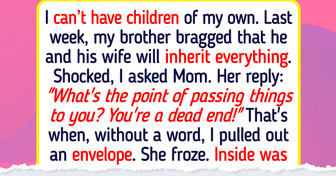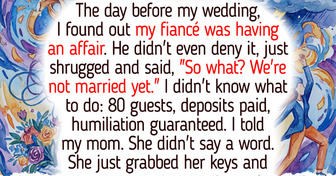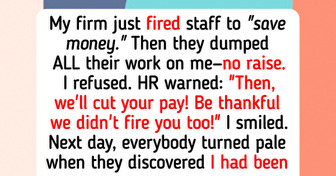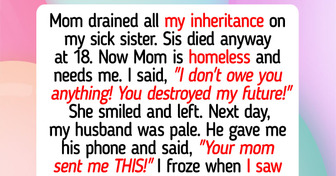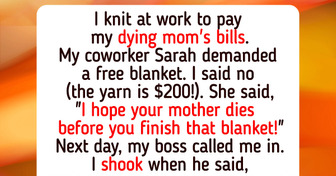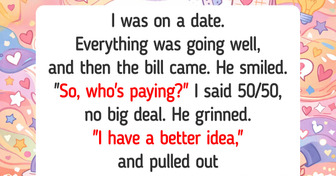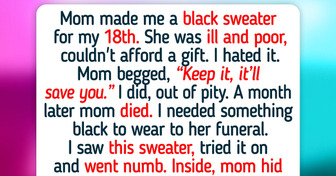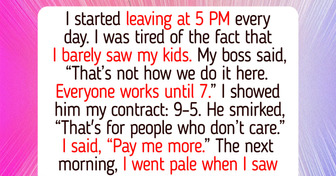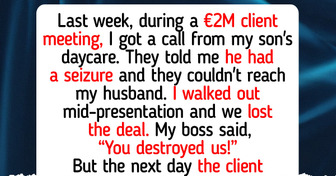31 Crochet Artists Who Can Turn Yarn Into Anything
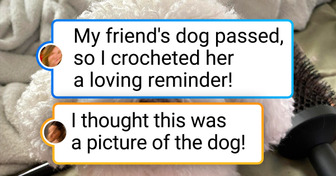
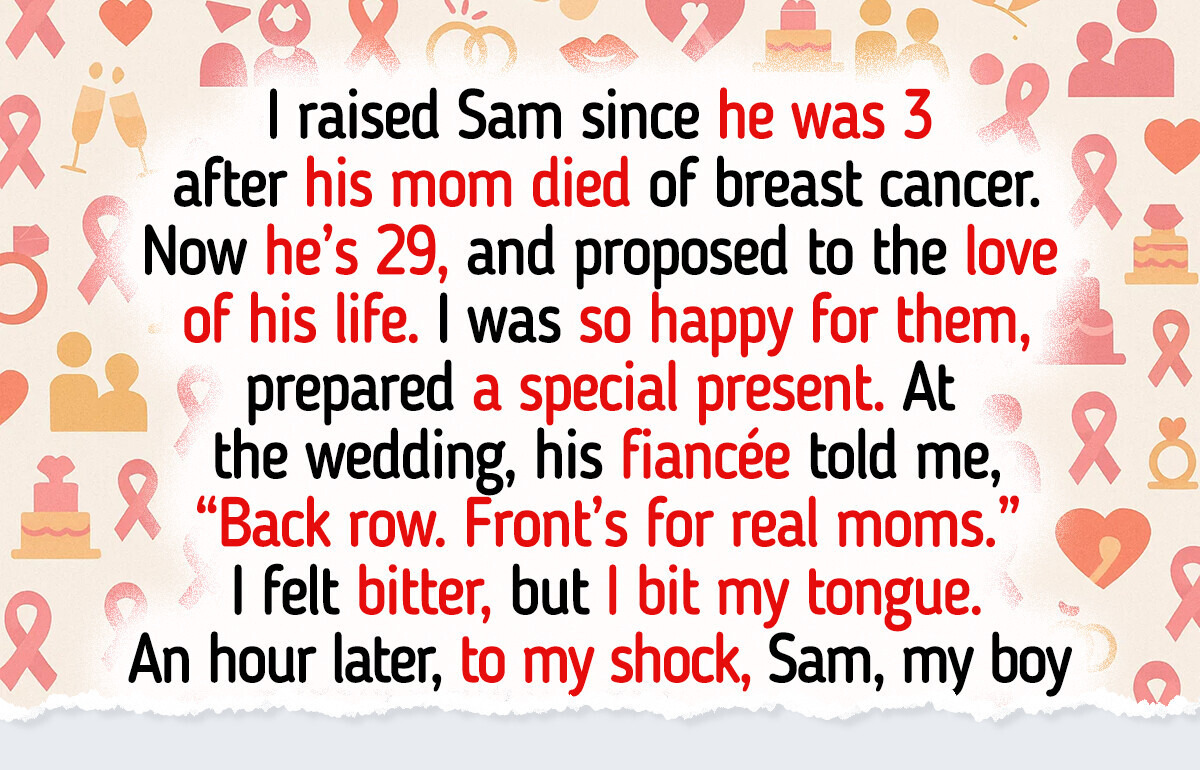
For nearly three decades, Susan raised a little boy who wasn’t born to her, but who became her entire world. She was there through scraped knees, first heartbreaks, graduations, and every silent battle that only a parent understands. She never demanded to be called “Mom,” never asked for recognition — she simply loved. And then came the moment that should have been the happiest day of her life — her son’s wedding.
Instead of gratitude, Susan was met with something far colder. In a single, casual sentence, all those years of sleepless nights and unconditional care were dismissed, as if she were nothing more than a stranger crashing someone else’s family celebration. Gently but firmly pushed aside — unwelcome and invisible.
Her story made us question: how fragile are the bonds we believe to be unbreakable? How easily can love be overshadowed by ignorance or pride? We invite you to read Susan’s full letter below. She needs your opinion and advice.
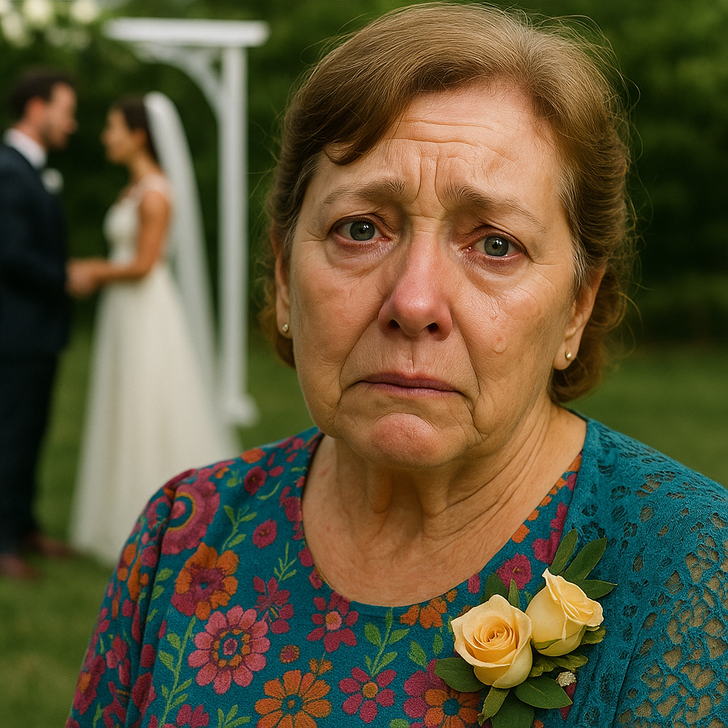
Hi Bright Side,
I never really thought I’d be writing something like this, but here I am. I could really use some outside perspective, maybe from people who have been in similar shoes — or just anyone who feels like sharing their thoughts.
My name’s Susan. I’m 61 now. When I was 32, my cousin (who was like a sister to me) passed away from breast cancer, leaving behind her 3-year-old son, Sam. His father had never been in the picture, and with no one else to care for him, I became his legal guardian and raised him as my own.
Sam grew up knowing the full story. He never called me “Mom.” I never asked him to. He always called me Susan, but our bond was deep and real. He was my boy.
We had our traditions — Friday pancakes, backyard campouts, reading books before bed even when he was a teenager and pretended to be too old for it. He’d send me flowers on my birthday, call me every night when he left for college. I was proud of him every step of the way.
When he met Claire, I was genuinely happy for him. She seemed smart, driven, and she made him smile. We didn’t see each other often, but whenever we did, I tried my best to be supportive and not intrusive. I know how important it is for young couples to have their own space.
Now, he’s 29 and a whole new era of his life began. He proposed to the love of his life. For their engagement, I made them a family photo album — Sam from his toddler years all the way to adulthood. He cried when I gave it to him, hugged me, and whispered, “You made me who I am.” One of the happiest moments of my life.
And then came the wedding.
I had spent weeks preparing a special gift: a handmade quilt with their names and wedding date stitched into it, and in one small corner, I embroidered: “To Son, with love, from your mom.” I planned to give it to them after the ceremony.
When I arrived at the venue, I approached the seating area to check where I’d be sitting. That’s when Claire pulled me aside. She smiled, almost politely, and said, “Susan, you’ll be sitting in the back row. The front is for real moms.”
She said it so casually. Like it was simply a matter of fact. No malice, no anger — just... dismissive. Like I was nothing more than a distant relative or a family friend.
I felt something inside me crack. But I smiled, nodded, and walked to the back. I didn’t want to cause a scene. This was Sam’s day. His happiness mattered more than my pride.
About an hour into the ceremony, something completely unexpected happened. To my shock, Sam, my boy, took the microphone before the vows and looked out at the guests.
His voice was shaking a bit: “Before we continue, I need to say something. There’s someone very important who belongs in the front row. She didn’t give birth to me, but she raised me, loved me, sacrificed for me, and made me the man I am today.
Susan, you are my mom. You always have been. I’m sorry I never called you ‘Mom’ before — I didn’t know how. But you are my mother. Please come sit where you belong.”
I don’t really remember walking up to the front. I just remember people clapping, some crying, Sam hugging me tightly as I sat next to him. Claire looked uncomfortable for a moment but said nothing.
The rest of the wedding was beautiful. I gave them the quilt later that evening. People came up to me, shared kind words, and for a while, everything felt right.
But here I am, a week later, still struggling. I can’t seem to shake off the pain from what Claire said. I try to tell myself she was just nervous or maybe didn’t realize how hurtful her words were. But deep down, I feel like I can’t fully forgive her.
And I feel guilty of that. I don’t want to be the kind of mother-in-law who silently resents her daughter-in-law. I want Sam to be happy. But my heart still aches.
Has anyone else ever felt this way? How do you let go of something like this? I don’t want to carry this bitterness, but I don’t know how to put it down. Any advice — or even just your thoughts — would really mean a lot.
Susan, we want to sincerely thank you for trusting us with your story — for opening your heart and allowing us, and now our readers, to witness your deepest pain and vulnerability. Sharing something so personal takes incredible courage.
Your letter can touch thousands, and many who will read it will feel seen in their own silent struggles. We hope the advice below will help you navigate this painful moment, bring peace to your heart, and restore harmony both within yourself and within your family.

First and foremost, it’s essential to recognize that your emotions are valid. You feel hurt not because you’re weak or resentful, but because you deeply loved and sacrificed — and those sacrifices were momentarily dismissed. Denying or suppressing your feelings will only make them heavier. Instead, allow yourself to fully experience your emotions, without guilt or shame.

You may feel guilty for not being able to fully forgive Claire right away — but healing is not linear. Self-compassion means accepting that you are human, that forgiveness takes time, and that you deserve the same kindness you’ve always offered others. You’re allowed to need space as you work through your pain.
Your son clearly loves you deeply and stood up for you in a powerful way. It may help to have an open, calm conversation with him — not to assign blame, but to share how you felt and still feel. This can strengthen your bond and help him understand your continued emotional struggle without putting him in a defensive position.
You cannot control Claire’s actions or force a different dynamic overnight. What you can control is how much power you allow her words to have over your peace. Acceptance doesn’t mean approval; it means freeing yourself from the weight of expectations you cannot control.
And here’s a 35-year-old father, who shared a deeply personal story that left our entire editorial team speechless. It’s a raw, painful account of love, sacrifice, and a moment that shattered his sense of fatherhood in just one sentence.
The man has raised his 12-year-old daughter with unwavering devotion. But everything changed after one visit to her mom’s house. His story isn’t just about family — it’s about identity, betrayal, and the quiet breaking point so many parents silently carry. The man needs to know: Did he go too far, or was he finally standing up for himself?

